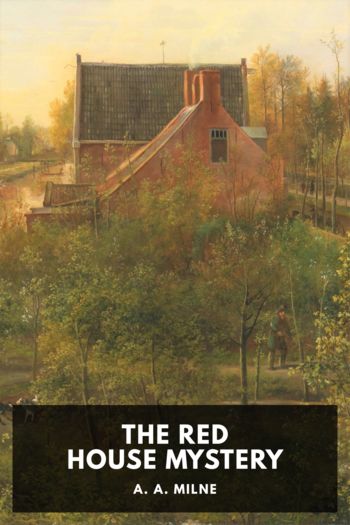Short Fiction - Edgar Allan Poe (book reader for pc .TXT) 📗

- Author: Edgar Allan Poe
Book online «Short Fiction - Edgar Allan Poe (book reader for pc .TXT) 📗». Author Edgar Allan Poe
Upon reading these various extracts, they not only seemed to me irrelevant, but I could perceive no mode in which any one of them could be brought to bear upon the matter in hand. I waited for some explanation from Dupin.
“It is not my present design,” he said, “to dwell upon the first and second of those extracts. I have copied them chiefly to show you the extreme remissness of the police, who, as far as I can understand from the Prefect, have not troubled themselves, in any respect, with an examination of the naval officer alluded to. Yet it is mere folly to say that between the first and second disappearance of Marie there is no supposable connection. Let us admit the first elopement to have resulted in a quarrel between the lovers, and the return home of the betrayed. We are now prepared to view a second elopement (if we know that an elopement has again taken place) as indicating a renewal of the betrayer’s advances, rather than as the result of new proposals by a second individual—we are prepared to regard it as a ‘making up’ of the old amour, rather than as the commencement of a new one. The chances are ten to one, that he who had once eloped with Marie, would again propose an elopement, rather than that she to whom proposals of elopement had been made by one individual, should have them made to her by another. And here let me call your attention to the fact, that the time elapsing between the first ascertained, and the second supposed elopement, is a few months more than the general period of the cruises of our men-of-war. Had the lover been interrupted in his first villany by the necessity of departure to sea, and had he seized the first moment of his return to renew the base designs not yet altogether accomplished—or not yet altogether accomplished by him? Of all these things we know nothing.
“You will say, however, that, in the second instance, there was no elopement as imagined. Certainly not—but are we prepared to say that there was not the frustrated design? Beyond St. Eustache, and perhaps Beauvais, we find no recognized, no open, no honorable suitors of Marie. Of none other is there anything said. Who, then, is the secret lover, of whom the relatives (at least most of them) know nothing, but whom Marie meets upon the morning of Sunday, and who is so deeply in her confidence, that she hesitates not to remain with him until the shades of the evening descend, amid the solitary groves of the Barrière du Roule? Who is that secret lover, I ask, of whom, at least, most of the relatives know nothing? And what means the singular prophecy of Madame Rogêt on the morning of Marie’s departure?—‘I fear that I shall never see Marie again.’
“But if we cannot imagine Madame Rogêt privy to the design of elopement, may we not at least suppose this design entertained by the girl? Upon quitting home, she gave it to be understood that she was about to visit her aunt in the Rue des Drômes and St. Eustache was requested to call for her at dark. Now, at first glance, this fact strongly militates against my suggestion;—but let us reflect. That she did meet some companion, and proceed with him across the river, reaching the Barrière du Roule at so late an hour as three o’clock in the afternoon, is known. But in consenting so to accompany this individual, (for whatever purpose—to her mother known or unknown,) she must have thought of her expressed intention when leaving home, and of the surprise and suspicion aroused in the bosom of her affianced suitor, St. Eustache, when, calling for her, at the hour appointed, in the Rue des Drômes, he should find that she had not been there, and when, moreover, upon returning to the pension with this alarming intelligence, he should become aware of her continued absence from home. She must have thought of these things, I say. She must have foreseen the chagrin of St. Eustache, the suspicion of all. She could not have thought of returning to brave this suspicion; but the suspicion becomes a point of trivial importance to her, if we suppose her not intending to return.
“We may imagine her thinking thus—‘I am to meet a certain person for the purpose of elopement, or for certain other purposes known only to myself. It is necessary that there be no chance of interruption—there must be sufficient time given us to elude pursuit—I will give it to be understood that I shall visit and spend the day with my aunt at the Rue des Drômes—I will tell St. Eustache not to call for me until dark—in this way, my absence from home for the longest possible period, without causing suspicion or anxiety, will be accounted for, and I shall gain more time than in any other manner. If I bid St. Eustache call for me at dark, he will be sure not to call before; but, if I wholly neglect to bid him call, my time for escape will be diminished, since it will be expected that I return the earlier, and my absence will the sooner excite anxiety. Now, if it were my design to return at all—if I had in contemplation merely a stroll with the individual in question—it would not be my policy to bid St. Eustache call; for, calling, he will be sure to ascertain that I have played him false—a fact of which I might keep him forever in ignorance, by leaving home without notifying him of my intention, by returning





Comments (0)